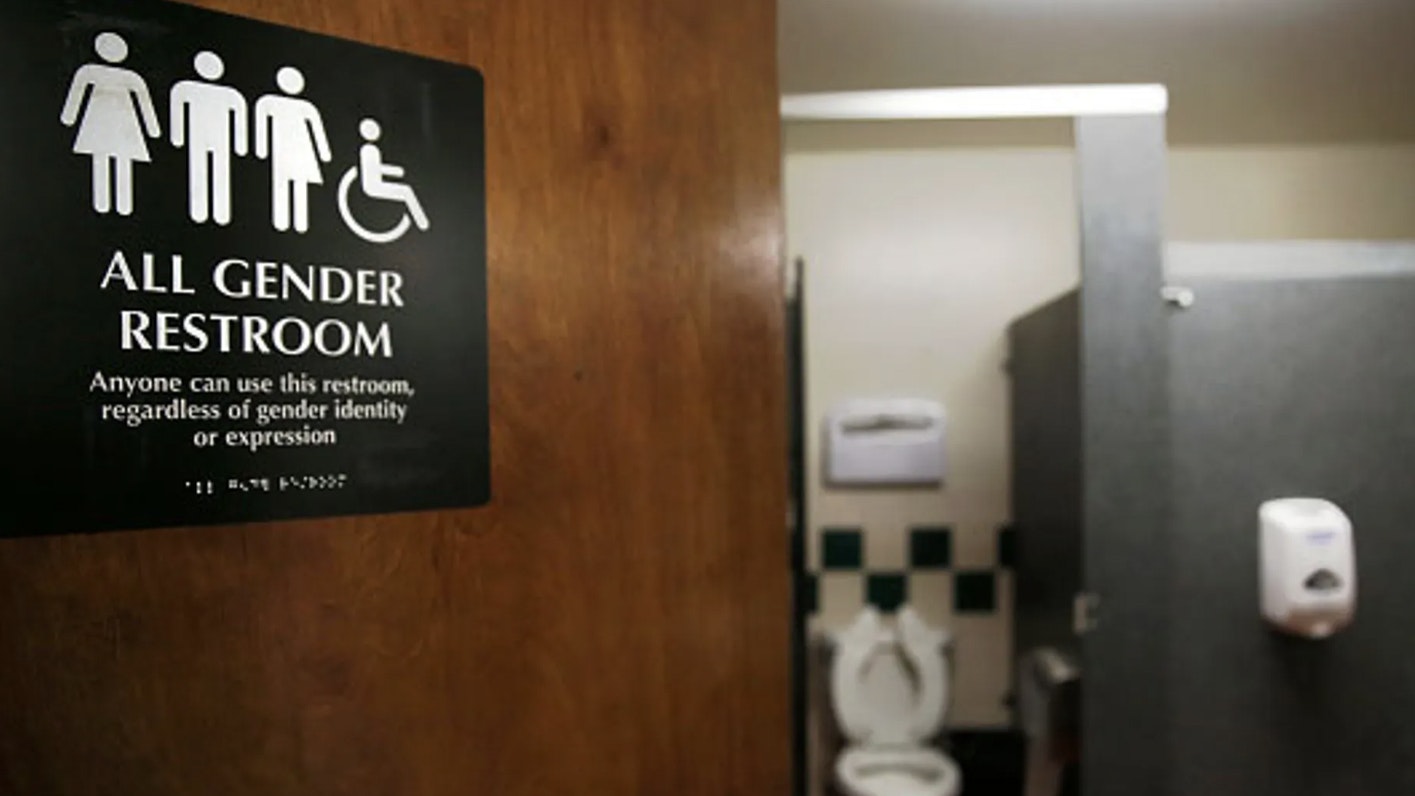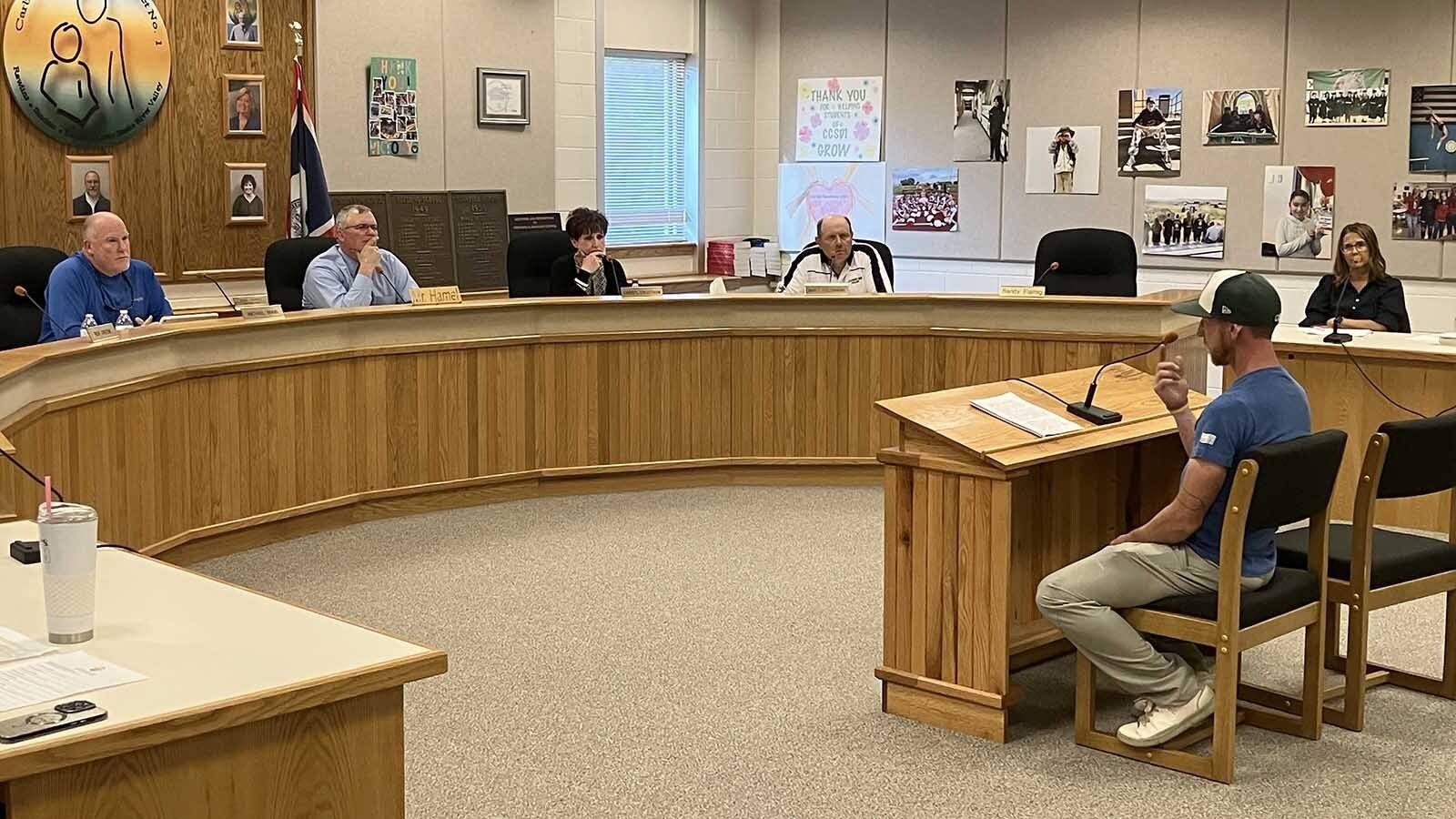By Clair McFarland, Cowboy State Daily
clair@cowboystatedaily.com
Twenty-two states last week sued the U.S. Department of Agriculture for imposing transgender-friendly guidance on the nation’s schools and state agencies, but Wyoming wasn’t one of the states suing.
The USDA is trying to coerce schools and other programs into major policy changes which could require transgender bathroom use and sports participation in schools, claims a lawsuit filed July 26 in the U.S. District Court for Eastern Tennessee.
The suit further alleges that the new rule also could punish staffers for using pronouns matching a transgender person’s biological sex.
But USDA’s mandates are still in the non-binding phase as “guidance” and have not yet become official rules.
Wyoming isn’t part of the lawsuit because it doesn’t have specific laws banning transgender accommodations such as bathroom or sports access, according to Wyoming Gov. Mark Gordon’s office.
“The suit included references to specific state laws with which the (USDA) guidance seems to conflict,” said Michael Pearlman, Gordon’s spokesman, in a Monday email to Cowboy State Daily. “Wyoming does not currently have similar specific laws.”
The Wyoming Legislature did not pass its proposed “Fairness in Women’s Sports Act,” which would have prohibited biological males from competing on female sports teams. The bill died in the House of Representatives in March.
If the guidance becomes a final rule that harms Wyoming, the governor’s office will “be prepared to take legal action” at that time, Pearlman said, adding that Gordon still believes the guidance is “completely unnecessary for Wyoming,” where the state Constitution promises equal rights.
Gender Identity, Sexual Orientation
USDA in May asked all schools and state agencies receiving federal money for school meals to update their nondiscrimination statements to include “sexual orientation” and “gender identity” as protected groups. USDA also asked those institutions to treat discrimination complaints under the new qualifiers as sex-based discrimination, and has since said it may withdraw school lunch funding from agencies that don’t comply.
Wyoming receives about $40 million a year in USDA school meals funding.
The 22 states suing USDA, together, received about $28.7 billion in USDA meals funding in fiscal year 2020.
‘Normal Practices’
The states have asked the court to block USDA’s directives and declare them unconstitutional and unlawful.
“The Biden Administration’s sweeping rhetoric treats normal practices, such as sex-separated bathrooms and athletics, as ‘discriminatory’ even though (the U.S. Department of Justice) and the Department of Education treated those as legal, nondiscriminatory practices as recently as last year,” the suit reads.
The states suing USDA listed many reasons for doing so. They claimed USDA’s new rule violates the First Amendment right to free speech and protection of religion; and the sovereignty of states promised in the Tenth Amendment. Plaintiffs said the guidance also contradicts the actual text of the non-discrimination law known as Title IX, the historical application of that law and a clause of the Constitution that limits how the federal government can strap caveats to federal funding.
“States – including the plaintiff states – do not… deny SNAP (foods funding) certification of applicant households based on household members’ sexual orientation or gender identity,” the suit reads, possibly in response to USDA language in its public statements claiming the new rule is designed merely to prevent foods-access discrimination.
USDA had not filed a response as of Monday.
Firings Or Bathrooms
One of Biden’s first actions in office was an executive order aimed at expanding protections for the LGBTQ community. He ordered all federal agencies to review their policies relating to Title VII.
The U.S. Supreme Court in the 2020 case Bostock vs. Clayton County ruled that for Title VII, which protects people’s rights in the workplace, gender identity and sexual orientation fall under the definition of “sex.”
For example, employers can’t fire someone for being a woman; following Bostock, they can’t fire someone for being gay or transgender either.
The ruling did not address Title IX, which protects people’s rights in education systems.
Last June, the U.S. Department of Education announced that it was reinterpreting Title IX anti-discrimination law to include gender identity and sexual orientation under the definition of “sex,” a qualifier that previously referred to one’s biological sex. The department said it was basing its reinterpretation on Bostock.
The Department of Justice in March 2021 also announced a reinterpretation of Title IX, but it based its opinion in part on federal appeals-court case Grimm vs. Gloucester County, in which the majority of judges held that denying a transgender high school boy access to the boys’ bathroom constituted Title IX discrimination.
Twin Suit
A coalition of states largely matching those now suing USDA also sued the U.S. Department of Education last August, generally for the same reason: the agency’s application of Bostock to Title IX.
The Department of Education likewise had pledged to strip funding from states that didn’t fall in line with the new interpretation of Title IX.
The U.S. District Court for Eastern Tennessee, the same court now contemplating the states’ suit against the USDA, has temporarily blocked the education department’s Title IX mandates.
“Because the Department of Education so far has not prevailed in the states’ lawsuits against its (mandates)… (Biden) seemingly decided to use the USDA to accomplish its rewriting of Title IX through other means,” reads the complaint against the USDA.
This June, Biden signed another executive order, this time aimed at fighting state legislation against transgender-accommodative policies.
“Three hundred discriminatory bills introduced in states across the country,” Biden had said, “(are part of) the ultra-MAGA agenda attacking families and our freedoms.”





